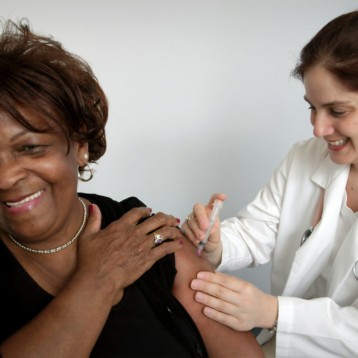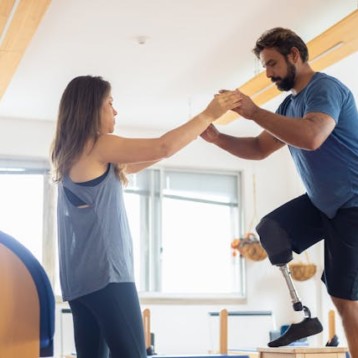A new form of cognitive-behavior therapy offered by the Department of Psychology in the University of Haifa in Israel uses virtual reality to confront one of the more common phobias.
In the lab of Professor Marilyn Safir and Professor Helene Wallach from the department of Psychology in the University of Haifa a new and innovative treatment for fear of flying using virtual worlds is currently being tested. The main element in the treatment of phobias has always been exposing the patient to the source of the fear. However in the case of flight that has proved difficult since many patients suffering from fear of flying refuse to board airplanes (sometime even when on the ground).
–
–
Fear of flying is defined as a specific phobia which is exhibited whenever a person contemplates the possibility of flaying in an aircraft. This phobia can have dramatic consequences in modern society including giving up business opportunities and vacations involving flights. Even preparing for a vacation or a business trip can result in a panic attack.
–
–
Studies have shown that cognitive behavior therapy is the most effective treatment for fear of flying. Using virtual reality technology, the patient which is seated in the lab, uses a real airplane seat is wearing virtual reality glasses and undergoes the full experience of flight. Going from boarding to seating to taking off (vibrations), actual flight and finally safe landing.
–
–
Virtual reality can also allow the patient and the therapist to build more complex situations in a safe (virtual) environment. The therapist will not move to the next level before the anxiety level of the patient has been reduced. Another advantage of a virtual environment is the ability to repeat situations time and time again with no risk (and no cost).
–
–
Marilyn Safir and Helene Wallach have been working on treating other phobias as well using virtual reality (VR) including Public Speaking (going way back to 2005) which is the most common social phobia, afflicting 40% of all those who suffer from social phobia.
–
–
You can find out more about the new treatment on the University of Haifa Department of Psychology dedicated cognitive-behavior therapy dedicated page.
–
–
in 2011 TFOT covered The Massachusetts based Company Affectiva which developed the Q-Sensor – a special watch-like sensor that measures emotional arousal via skin conductance that grows higher whenever a person is feeling anxiety.











